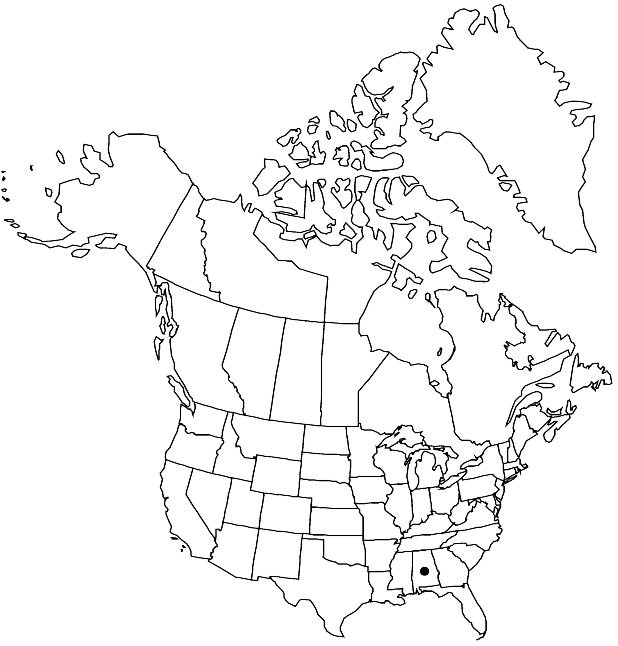Difference between revisions of "Paysonia lyrata"
Novon 12: 381. 2002.
FNA>Volume Importer |
imported>Volume Importer |
||
| (5 intermediate revisions by 2 users not shown) | |||
| Line 8: | Line 8: | ||
}} | }} | ||
|common_names=Lyrate or lyreleaf bladderpod | |common_names=Lyrate or lyreleaf bladderpod | ||
| − | |basionyms={{Treatment/ID/ | + | |basionyms={{Treatment/ID/Basionym |
|name=Lesquerella lyrata | |name=Lesquerella lyrata | ||
|authority=Rollins | |authority=Rollins | ||
| + | |rank=species | ||
| + | |publication_title=Rhodora | ||
| + | |publication_place=57: 252, plate 1209. 1955 | ||
}} | }} | ||
|synonyms= | |synonyms= | ||
| Line 35: | Line 38: | ||
-->{{#Taxon: | -->{{#Taxon: | ||
name=Paysonia lyrata | name=Paysonia lyrata | ||
| − | |||
|authority=(Rollins) O’Kane & Al-Shehbaz | |authority=(Rollins) O’Kane & Al-Shehbaz | ||
|rank=species | |rank=species | ||
| Line 49: | Line 51: | ||
|publication year=2002 | |publication year=2002 | ||
|special status= | |special status= | ||
| − | |source xml=https:// | + | |source xml=https://bitbucket.org/aafc-mbb/fna-data-curation/src/2e0870ddd59836b60bcf96646a41e87ea5a5943a/coarse_grained_fna_xml/V7/V7_1008.xml |
|tribe=Brassicaceae tribe Physarieae | |tribe=Brassicaceae tribe Physarieae | ||
|genus=Paysonia | |genus=Paysonia | ||
Latest revision as of 22:29, 5 November 2020
Annuals; hirsute or glabrous, trichomes simple proximally, simple, with branched, smaller ones distally. Stems erect, outer decumbent at base, 1–3 dm. Basal leaves: blade 2–7 cm × 6–15 mm, margins lyrate, (terminal lobes relatively large, orbicular to elliptic), surfaces hirsute (trichomes simple, or mixed with branched, smaller ones). Cauline leaves: blade ovate to broadly oblong, 0.5–2 cm × 4–10 mm, base auriculate, clasping, margins nearly entire or coarsely dentate, (apex obtuse, surfaces densely to sparsely hirsute, trichomes simple, or simple and branched). Fruiting pedicels divaricate-ascending, straight, 10–15 mm, densely pubescent. Flowers: sepals (spreading, yellowish at anthesis), 3–4 × 1.2–1.5 mm, (outer pair slightly saccate basally), pubescent; petals yellow, 5–7 × 3.5–4 mm, (claw relatively short), apex slightly rounded, truncate, or shallowly retuse; filaments dilated basally, (glandular tissue subtending paired stamens, surrounding single stamens). Fruits sessile, subglobose, (often slightly depressed at base of style and slightly didymous), 3–4 × 3–4 mm; valves glabrous; replum orbicular or suborbicular, slightly broader than high; septum complete, (opaque); ovules 4–8 per ovary; style 1–1.5 mm, glabrous; stigma not expanded, nearly same diameter as style. Seeds oval to suborbicular, 1.5–2.5 mm. 2n = 16.
Phenology: Flowering Mar–Apr.
Habitat: Cedar glades, limestone hills, red soils, open pastures, disturbed soils of roadsides, bottom lands, old fields
Discussion
Of conservation concern.
Selected References
None.
